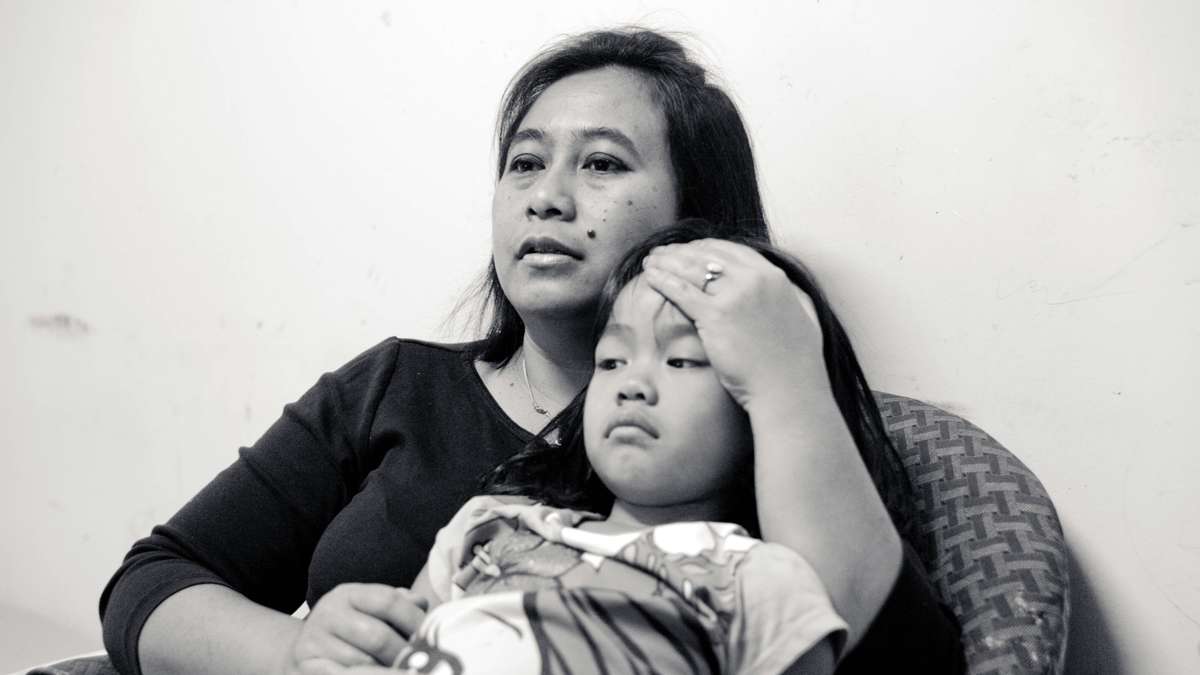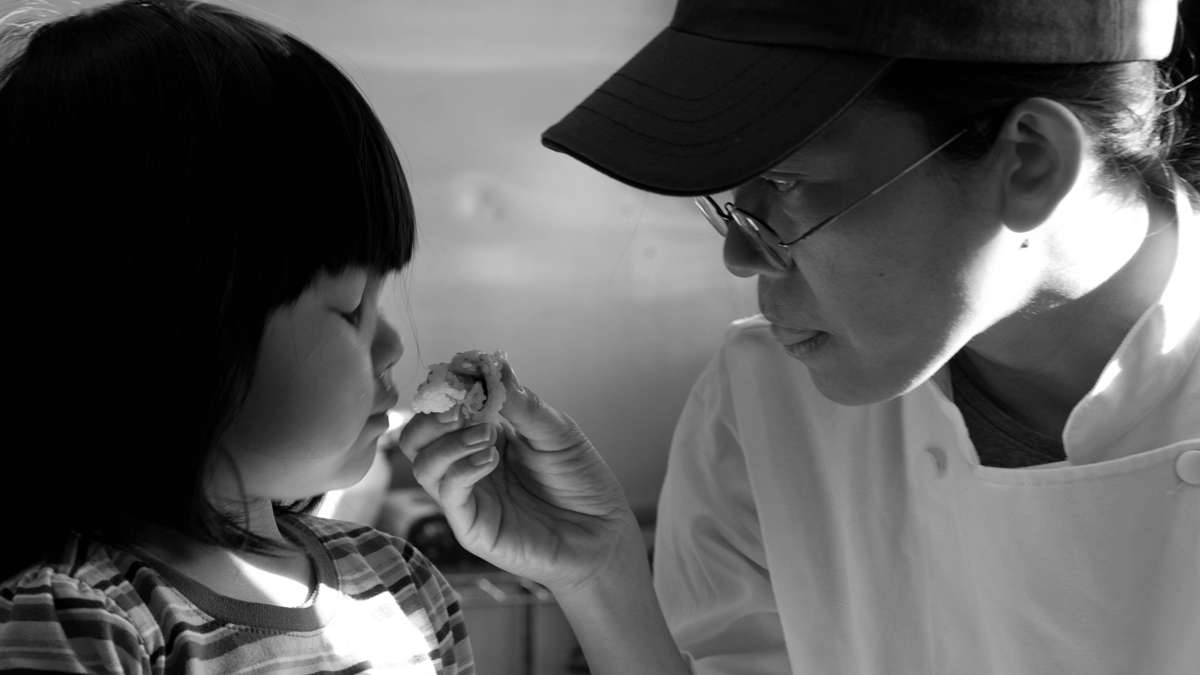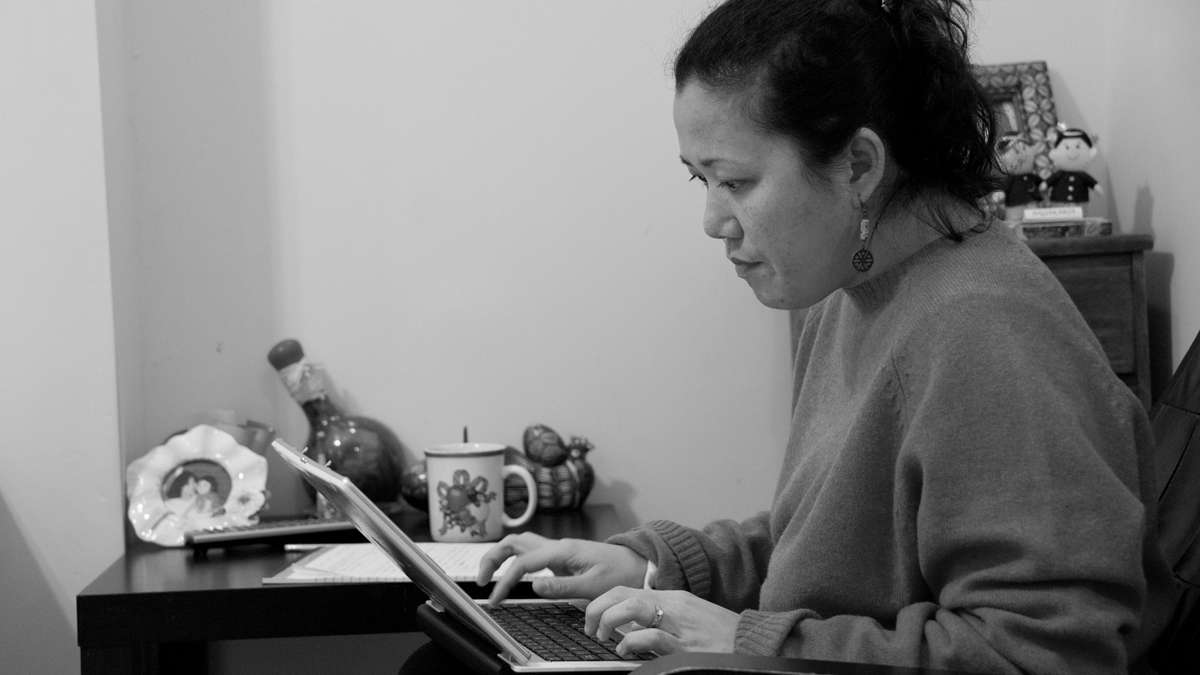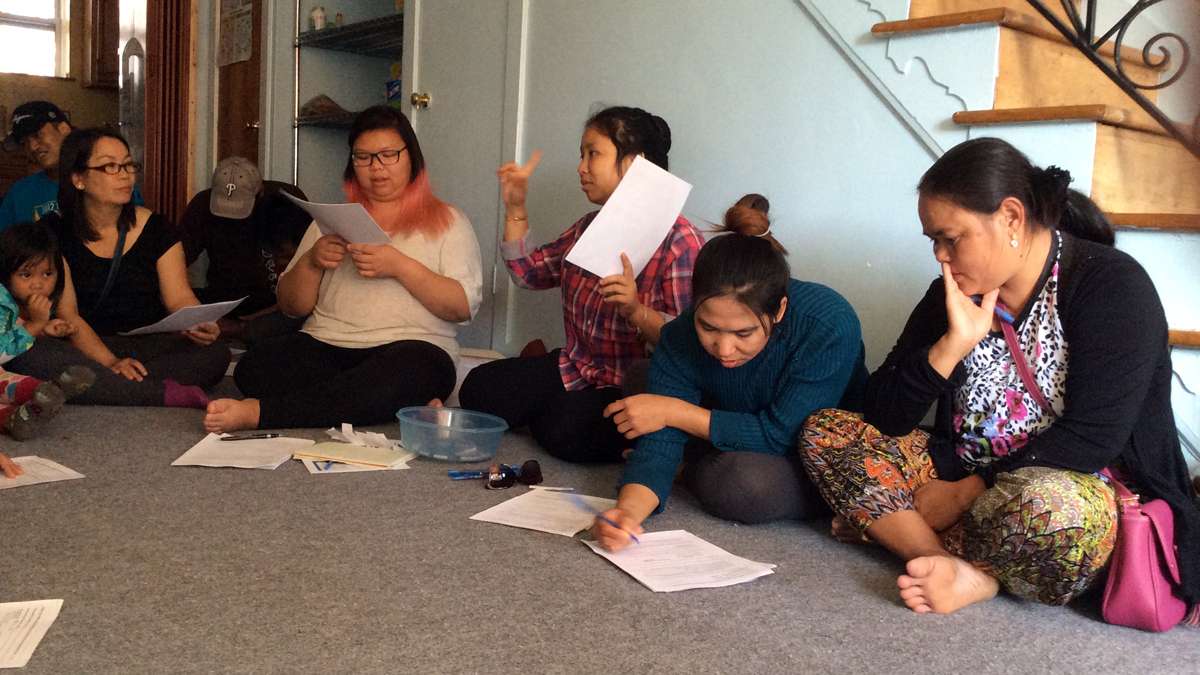‘Finding Home’ a creative outlet for refugees, an immigration story unseen by many Americans
As a journalist and writer, I have done a fair amount of teaching and facilitating writing groups. But working with immigrants is different. Usually when I facilitate other groups, the biggest challenge for the participants is finding something interesting to write about. With the immigrants, there are so many incredible stories, the challenge is to pick just one.
On a beautiful Saturday afternoon last summer, about 20 Burmese refugees gathered at Three Jewels Temple, a Theravada Buddhist Temple on 6th and Porter in South Philadelphia to commit their life experiences to writing. I was there to help them.
Most of these people don’t speak English and had just arrived in Philadelphia months prior.
The Burmese group was fairly typical among the groups I had been working with for “Finding Home,” a writing project partially funded by The Leeway Foundation’s Art and Change Grant, as a way for female refugees and immigrants to share stories about their hometowns and their newly found home, America, in the form of memoir.
Myanmar, formerly known as Burma, is a country in Southeast Asia, located between Thailand and Bangladesh. Since 1962, Myanmar has been ruled by a military government that has suppressed religious and political freedom and caused tens of thousands of people to flee to camps in Thailand, Malaysia, and other neighboring countries.
Many homes; one journey
“Home” can mean different things to different people. For some, home is the place where you were born and raised, where people speak your native language and behave more or less the way you do. For others, home is where you know and trust others; where you feel accepted and understood.
When I first started these workshops, with a group of Indonesian women at an Indonesian restaurant on Washington Avenue in 2009, I could not have predicted how it would grow to include women from so many countries — at least 20 countries so far, but I’ve lost count.
It expanded to so many communities because we share one same experience: our journey in finding a new home here in Philadelphia.
For myself, since I moved to Philadelphia in 2001 and started working with immigrant communities, the writing group has become my creative outlet, my sanctuary, a place where I can be myself. Where I can express my feelings, my sadness, anger, anxiety, happiness, and dreams. Where I do my self-discovery process, again and again. And that’s what I want to share with the workshop participants.
As a journalist and writer, I have done a fair amount of teaching and facilitating writing groups. But working with immigrants is different. Usually when I facilitate other groups, the biggest challenge for the participants is finding something interesting to write about. With the immigrants, there are so many incredible stories, the challenge is to pick just one.
Nang Tin, 32, was born in Myanmar and had to live in a refugee camp in Malaysia for four years after her family fled a crisis in her hometown in 2009. She, her husband, and their two kids were resettled in Philadelphia in January 2013. With her good English and her background in economics (she has a bachelor’s degree), she is one of the leaders in her community.
Tin is not alone. Recent data from the Pennsylvania Refugee Resettlement Program shows that Philadelphia gets around 900 refugees every year. They all had to flee their homelands for some reasons or other — a military regime, torture, ethnic conflicts, genocide, religious persecution, etc.
Ikhlas Abdul Razak is another example. By the time she arrived in Philadelphia five years ago, Abdul Razak and her family had been on the move for almost 10 years, migrating from one refugee camp to another. “We had to leave Sudan, because it was not safe for us,” she said. The famine and genocide in her native city Darfur forced her to flee her country. She now lives a better life in North Philadelphia with her husband and six kids.
The face of American immigration
I was so happy to be able to read some of the stories the participants had written at Live at The Kelly Writers House at the University of Pennsylvania in February 2010. The readings aired live on WXPN radio. I remember fondly a memoir, “Relying on Miracles,” written by Dwi Setiawan, a Ph.D. student from Indonesia who had worked as a dishwasher and factory worker. I love this piece so much. It opens with a very strong paragraph:
“With a master’s degree from a well-known American university, I may be overqualified to work as a dishwasher. Not because of the current economic crisis at the beginning of Obama presidency, that made many people doing any kind of job in order to survive, but I have been doing this since the first day I set a foot in Uncle Sam’s country. I have to do any kind of job to survive. Reflecting to my life for a decade here in Philadelphia, which has become my second home, I not only believe in miracles, but I am very dependent on them.”
Setiawan is one of the smartest participants in our writing groups. As a mother of two young kids, she works several jobs but still is able to go to school. Not only that, she is proud of her hard work. She ended her strong and beautiful piece with a humble paragraph:
“After experiencing variety of jobs with different responsibilities, which sometime have difficult names in English, I can simply call myself a ‘Tenaga Kerja Wanita’ or ‘kuli’ or ‘labor.’ I am quite thankful for everything I have done so far. With these jobs, I am proud that I have never asked for government subsidy and I can help my family and the people around me. As a ‘kuli’ I got a chance to get a higher education. As a ‘kuli’ I could give my daughters better possibilities in life. And if one day my daughters ask me about my profession, I will proudly answer, ‘I am a Kuli.'”
I read another beautiful piece at the same event, this one written by Dewi Fretiyaningsih, titled “Philadelphia, Here I Am.” Pretty (her nickname), 31, started her story with her point of view about how dirty South Philadelphia is:
“Philadelphia is very dirty, especially South Philadelphia where I currently live. When I first arrived in the U.S., I didn’t think I would live in a condition like this. The rowhouses looked very strange to me. No front yards, no garages, and cars parked off streets. Even worse than that: Trash is everywhere, on the sidewalks and on the streets. Why is America like this? I think it’s not better than Jombang, East Java, where I am from.”
Eventually Pretty changed her mind and thought Philadelphia was beautiful, too, and important, because of its historical background. She also shared her “scary experience” when the immigration officers raided her house to find some “illegal immigrants.” She said some of her friends, had fled the house through the back door and windows. Some hid in the basement, and she was able to hide in a closet. She also told about how she survived living in a three-bedroom house, shared with 12 other adults, with only one bathroom.
After the reading, women from the audience approached me and hugged me and thanked me for sharing the stories. Seeing their tearful eyes and receiving those hugs, I know we have made a difference.
Inspirational stories of survival
After conducting these workshops for five years, I have come to several conclusions, which are very personal. First, I think it’s easier to work with groups from a single ethnic community. Besides the language barrier of mixed groups, it takes much longer for the participants to feel at ease, to be able to share the stories, and to connect with each other. Also because I don’t speak their native languages, and they struggle with English, the role of interpreters is very important — but it also makes the creative process work more slowly. Participants are often embarrassed and fearful to say the “wrong” things. I noticed that all of the really amazing stories came before or after the formal writing sessions.
Also, many of them do not want to use their complete names. “We are embarrassed of being a refugee,” said one participant from Ivory Coast. She was also afraid that the facts in her story could harm her if one day she wanted to visit her families in her native country.
Sometimes I felt overwhelmed, especially when a participant wanted a “one-on-one” writing session with me, instead of doing it in the group. Other times I felt burned out and discouraged when women took back their stories, because they were scared, or because their husbands were too embarrassed to have their stories shared or published.
But most of the time I am happy and inspired by their stories of survival. People who have been in refugee camps for years usually have lost their sense of control over their lives. But from “Finding Home” I know for sure: They are not helpless victims, because the truly helpless victims did not make it here to America. They are all survivors and fighters.
—
A version of this essay was published by Indonesian Lantern.
Indah Nuritasari is a refugee outreach specialist at Women’s Opportunities Resource Center in Philadelphia. She has been working with immigrant communities in Philadelphia since 2001. She is also the chief editor of Indonesian Lantern, the voice of the Indonesian community in America. She can be reached at nuritasari@yahoo.com.
WHYY is your source for fact-based, in-depth journalism and information. As a nonprofit organization, we rely on financial support from readers like you. Please give today.












